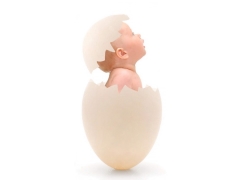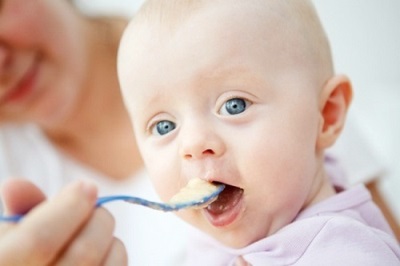When can I give egg protein to a child?
Eggs are a valuable product for the nutrition of each person, so the yolk of chicken or quail eggs appears in the lure of the child even in the first year of life. But egg white is usually not in a hurry to enter the children's menu. Why such a product should not be given at an early age and when you can offer egg whites to your baby?
How is protein useful?
- This product is a source of animal proteins that perform a structural and building function in a child’s body.
- It contains all the amino acids, including essential, which the baby should receive with food daily. With their lack of food may delay the development of the crumbs.
- It contains very little fat, therefore it is a low-calorie and dietary product. It can be used at any time of the day and at any body weight of the child.
- There are substances with antibacterial action - lysozyme and ovotransferrin.
- Contains vitamins of group B.
Egg protein damage
Animal proteins are considered to be strong allergens, therefore an allergic reaction to egg white is often found. It is believed that with such an allergy, a child can safely give quail eggs, but to such allergic reaction, although less often, it also happens.
When eating raw protein increases the risk of infection with salmonellosis.
To prevent it requires careful washing of the shell and a certain duration of heat treatment. In addition, raw proteins are hard to digest, and their consumption can lead to indigestion and flatulence.
From what age can I give?
Unlike yolk, which is introduced into the diet of healthy babies on breastfeeding from 9 months, and in the diet of art children from 7 months, egg white is not recommended to give up to 1 year. The main reason why it is not given in the earlier months is increased allergenicity. If the child has a tendency to allergies, acquaintance with egg proteins is transferred to a later age.

How to introduce in the feed?
Like any new product for a child, egg proteins are given for the first time in small quantities. For the first time, it is recommended to offer his baby for breakfast at the end of the day to determine if he has caused allergies. Do not give protein if the child on this day tried another new product or is sick. If the baby moved a new dish well, the next day the portion can be slightly increased.
How to cook
Begin acquaintance of the child should be with boiled eggs. Heat treatment of chicken eggs for feeding children should last at least 5-10 minutes, so babies do not give a soft-boiled and raw eggs (they are acceptable to offer over the age of 7 years). Quail egg after careful washing boil for 2-3 minutes. In addition to boiled eggs, an older child may be offered an omelette, casserole, soufflé, salad and other egg dishes.
How much to give at different ages
But the rate of consumption of egg proteins affects the age of the child and the type of egg:
- Chicken - give 2-4 times a week (usually a whole egg is prepared for the child).
- Quail - at the age of 1-3 years give 1 pc. per day, and at the age of 4 years - up to 3 pcs. in a day.
Tips
- Buy fresh eggs in a proven place to feed your child.
- Take it in hand and shake - the product should not be too light or gurgling.
- From buying a product with chips and cracks should be abandoned.
- Also, do not buy too contaminated or washed eggs.
- Give babies chicken or quail eggs, since duck, turkey and goose are considered less preferable for baby food because of their higher fat content and high risk of allergies.
- Remember that before cooking it must be thoroughly washed.
You can learn more about the benefits of eggs from the following video.































































